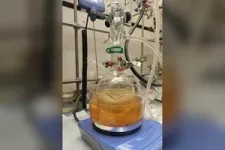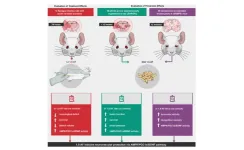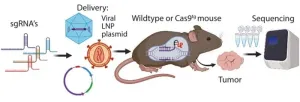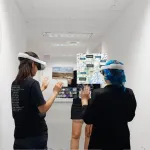(Press-News.org) While doctors and nurses were hailed as the frontline heroes of the COVID-19 pandemic, their counterparts in public health were experiencing threats. During the pandemic, threats against public health workers reached an all-time high. After the vaccine was released, those threats increased and changed in nature, according to a longitudinal study conducted during the first year of the pandemic by Jennifer Horney, founder of the University of Delaware Epidemiology Program in the College of Health Sciences.
The results, recently published in an open-access commentary in Public Health in Practice, show a strong need for expanded legal protections for all frontline workers but also illustrate a need for a more resilient and public health workforce.
While public health workers have always received threats, including during the SARS and Zika outbreaks, the COVID-19 pandemic threats were different.
“These threats were more personal in nature,” Horney said. “Due to the proliferation of social media and the politicization of the pandemic, for the first time, public health leaders were finding protesters on their doorsteps or were being doxed.”
Horney and her team surveyed staff at state and local health departments in 23 states – most of them epidemiology or communicable disease staff.
The initial online survey found that 25% of respondents said someone in their public health agency had received personal threats. That percentage practically doubled to 41% in a follow-up survey. Of those, respondents said nearly all the personal threats were lodged by members of the public. Almost 40% reported receiving political threats.
The threats reported by public health workers who responded to the survey ranged from death threats to blame for COVID-19 deaths due to incompetence. One respondent reported a member of the public slapped her hand while administering a vaccine, while another said an unmasked person coughed on her before calling her an expletive.
“The threats were much more intense across the board,” Horney said. “But the personal attacks of this nature were something we hadn’t seen before.”
The study found that public health leaders were particularly hard-hit. During the pandemic, public health leaders felt internal and external pressure to alter data to support lowering COVID-19 restrictions. More than half of local health directors reported harassment of themselves or their staff between March 2020 and January 2021. As a result, more than one in three public health leaders retired, resigned or were fired.
“Nearly every state lost a public health leader during COVID-19, and half of those losses were affiliated with some kind of threat,” Horney said. “Leadership turnover during a public health emergency response can have significant negative impacts on effectiveness.”
During the COVID-19 pandemic, public trust in the Centers for Disease Control (CDC) plummeted. State legislatures also introduced 1,531 bills during the pandemic seeking to alter public health emergency authorities. Of those, 191 were enacted in 43 states. Just 17 laws expanded public health authorities, while 65 laws contracted emergency authorities.
“The COVID-19 pandemic also marked the first time dozens of state legislators introduced new laws to take away public health powers,” Horney pointed out. “It was very shortsighted because vaccination powers are pivotal in preventing deadly disease outbreaks.”
The severity of the threats and their impact on the workforce is concerning, Horney said.
“These threats led to mental and emotional health problems that took a toll on this incredibly dedicated and already understaffed workforce,” Horney said. “It could take years for the workforce to recover.”
The study illustrates the need for more robust support for public health workers, including training, coping, protective services and media management.
“Public health has become more politicized with vaccine hesitancy and COVID, so leaders need more education and training to become more politically astute,” Horney said. “Public health workers who are governed by political factors must understand how power structures operate in their state and their ability to operate within those structures.”
In response to this study and others that show the pandemic's toll on the public health workforce, in October the CDC released new burnout prevention training. The free online training aims to help managers and supervisors prevent burnout in their employees and themselves.
Despite public health workers becoming more visible during the pandemic, that visibility has come with a cost. Horney said public health must find a better way to tell its success stories.
“The big argument has always been that when public health works well — it’s invisible. We don’t count how often you ate at a restaurant and didn’t get sick,” Horney said. “Public health needs to be more proactive and take more credit for the wins. If what you do is invisible unless there’s a big emergency, it will remain hard for the public to understand it.”
END
Threats against public health workers doubled during the COVID-19 pandemic
A new study shows threats were more personal in nature and calls for more support for workers
2023-11-28
ELSE PRESS RELEASES FROM THIS DATE:
Reducing inequitable health outcomes requires reducing residential segregation
2023-11-28
The U.S. must reduce racial residential segregation if it is to reduce racial disparities in health outcomes, according to a recently published study by researchers at Tufts University School of Medicine. The research on 220 metropolitan areas nationwide between 1980 and 2020 found strong links between trends in racial residential segregation and racial disparities in early death rates from a variety of causes.
The study is the first known to examine the association between changes in racial segregation over time ...
Manard named recipient of 2023 JAAS Emerging Investigator Lectureship
2023-11-28
Manard named recipient of 2023 JAAS Emerging Investigator Lectureship
Benjamin Manard, an analytical chemist in the Chemical Sciences Division of the Department of Energy’s Oak Ridge National Laboratory, has been selected for the 2023 Emerging Investigator Lectureship from the Journal of Analytical Atomic Spectrometry. JAAS is a publication of the Royal Society of Chemistry that shares innovative research on the fundamental theory and application of spectrometric techniques. Manard is the first winner of this award from a Department of Energy ...
Alcohol consumption may have positive and negative effects on cardiovascular disease risk
2023-11-28
FOR IMMEDIATE RELEASE
November 28, 2023
Contact:
Jillian McKoy, jpmckoy@bu.edu
Michael Saunders, msaunder@bu.edu
Lisa LaPoint, lisa.lapoint@tufts.edu
##
While past research has indicated that moderate alcohol consumption can lower one’s risk of cardiovascular disease (CVD), more recent studies suggest that moderate levels of drinking may be hazardous to heart health. ...
Anti-aging effects of 1,5-anhydro-D-fructose on brain diseases via AMPK activation
2023-11-28
A new research paper was published in Aging (listed by MEDLINE/PubMed as "Aging (Albany NY)" and "Aging-US" by Web of Science) Volume 15, Issue 21, entitled, “1,5-anhydro-D-fructose induces anti-aging effects on aging-associated brain diseases by increasing 5’-adenosine monophosphate-activated protein kinase activity via the peroxisome proliferator-activated receptor-γ co-activator-1α/brain-derived neurotrophic factor pathway.”
5’-Adenosine monophosphate-activated protein kinase (AMPK) is a metabolic sensor that serves as a cellular housekeeper; it also controls energy homeostasis and stress resistance. Thus, correct regulation ...
The double-edge sword of CRISPR application for in vivo studies
2023-11-28
“The Achilles’ heel of CRISPR application is the delivery of sgRNA/Cas9 to the desired tissues.”
BUFFALO, NY- November 28, 2023 – A new editorial paper was published in Oncotarget's Volume 14 on November 27, 2023, entitled, “The double-edge sword of CRISPR application for in vivo studies.”
In this new paper, researcher Martin K. Thomsen from Aarhus University begins his editorial by discussing a hallmark paper that was published a decade ago by Platt et al. on the in vivo ...
UTA research examines how to stay on task
2023-11-28
Our ability to pay attention to tasks—a key component of our everyday lives—is heavily influenced by factors like motivation, arousal and alertness. Maintaining focus can be especially challenging when the task is boring or repetitive.
“In many activities, it is difficult to maintain a high level of focus over time. Our research asks why this is the case,” said Matthew K. Robison, assistant professor of psychology at The University of Texas at Arlington.
He and colleagues at the University ...
Research spotlight: Improvements in HIV care in Black and White men who have sex with men
2023-11-28
Katherine Rich, MD MPH, resident in the MGH Department of Medicine, is the first author of a recently published paper in JAMA Network Open, “Projected Life Expectancy Gains from Improvements in HIV Care in Black and White Men Who Have Sex With Men.” Aima Ahonkhai, MD MPH and Emily Hyle, MD MSc, physician investigators in the Division of Infectious Diseases at Massachusetts General Hospital, are co-senior authors.
What Question Were You Investigating?
Substantial inequities persist across the HIV care continuum in the US; Black people with HIV bear a disproportionate disease burden due, ...
Sylvester study: Country of birth a key factor in assessing risk for conditions favorable to stomach cancer development
2023-11-28
MIAMI, FLORIDA (Nov. 28, 2023) – Researchers at Sylvester Comprehensive Cancer Center at the University of Miami Miller School of Medicine have found that country of birth – not just geographic region – is a key risk factor for gastric intestinal metaplasia, a precursor lesion of stomach cancer.
Although stomach cancer, often called gastric cancer, is relatively rare in the United States, it is much more common and deadly among Hispanics, non-Hispanic Black people, Asian Americans and Pacific Islanders than among the white population.
Sylvester and the University of Miami Health System serve a widely diverse racial and ethnic population, including ...
Carnegie Mellon University's XRTC will drive research into VR, AR innovations
2023-11-28
Virtual, augmented and other extended reality technologies present the possibility to transform health care, education, entertainment, communication and more.
And that transformation is close.
Headsets and haptic gloves could connect doctors and patients thousands of miles apart in a virtual hospital. Sensors could monitor someone's health or help teachers know if their students are paying attention. Scanners could allow objects from a person's home to appear in their favorite video game. Glasses could help people with visual impairments navigate the world around them. Extended ...
UTHealth Houston School of Dentistry researcher awarded $2 million grant by NIH to study pharmacotoxicity of areca nut
2023-11-28
A five-year, $2 million grant to study the pharmacological effects of the areca nut, commonly known as the betel nut, was awarded to a UTHealth Houston researcher by the National Institute on Drug Abuse, part of the National Institutes of Health (NIH).
The study, led by Alan Myers, PharmD, PhD, associate professor of pharmacology with UTHealth Houston School of Dentistry, will investigate how chemicals in the areca nut are metabolized in the body’s organs, particularly in the liver, and how that process is disrupted by alcohol or menthol.
“On the global level, areca nut chewing has been around since antiquity, but still poses a major public health ...
LAST 30 PRESS RELEASES:
Scientists show how to predict world’s deadly scorpion hotspots
ASU researchers to lead AAAS panel on water insecurity in the United States
ASU professor Anne Stone to present at AAAS Conference in Phoenix on ancient origins of modern disease
Proposals for exploring viruses and skin as the next experimental quantum frontiers share US$30,000 science award
ASU researchers showcase scalable tech solutions for older adults living alone with cognitive decline at AAAS 2026
Scientists identify smooth regional trends in fruit fly survival strategies
Antipathy toward snakes? Your parents likely talked you into that at an early age
Sylvester Cancer Tip Sheet for Feb. 2026
Online exposure to medical misinformation concentrated among older adults
Telehealth improves access to genetic services for adult survivors of childhood cancers
Outdated mortality benchmarks risk missing early signs of famine and delay recognizing mass starvation
Newly discovered bacterium converts carbon dioxide into chemicals using electricity
Flipping and reversing mini-proteins could improve disease treatment
Scientists reveal major hidden source of atmospheric nitrogen pollution in fragile lake basin
Biochar emerges as a powerful tool for soil carbon neutrality and climate mitigation
Tiny cell messengers show big promise for safer protein and gene delivery
AMS releases statement regarding the decision to rescind EPA’s 2009 Endangerment Finding
Parents’ alcohol and drug use influences their children’s consumption, research shows
Modular assembly of chiral nitrogen-bridged rings achieved by palladium-catalyzed diastereoselective and enantioselective cascade cyclization reactions
Promoting civic engagement
AMS Science Preview: Hurricane slowdown, school snow days
Deforestation in the Amazon raises the surface temperature by 3 °C during the dry season
Model more accurately maps the impact of frost on corn crops
How did humans develop sharp vision? Lab-grown retinas show likely answer
Sour grapes? Taste, experience of sour foods depends on individual consumer
At AAAS, professor Krystal Tsosie argues the future of science must be Indigenous-led
From the lab to the living room: Decoding Parkinson’s patients movements in the real world
Research advances in porous materials, as highlighted in the 2025 Nobel Prize in Chemistry
Sally C. Morton, executive vice president of ASU Knowledge Enterprise, presents a bold and practical framework for moving research from discovery to real-world impact
Biochemical parameters in patients with diabetic nephropathy versus individuals with diabetes alone, non-diabetic nephropathy, and healthy controls
[Press-News.org] Threats against public health workers doubled during the COVID-19 pandemicA new study shows threats were more personal in nature and calls for more support for workers









